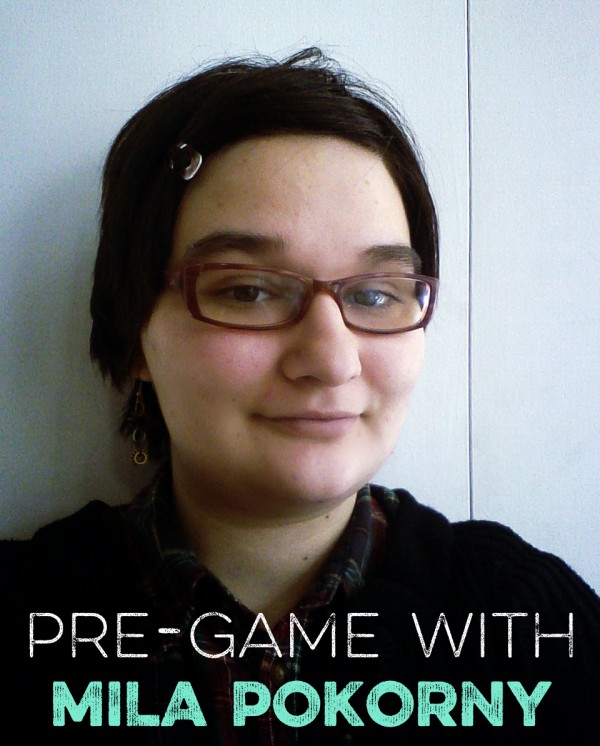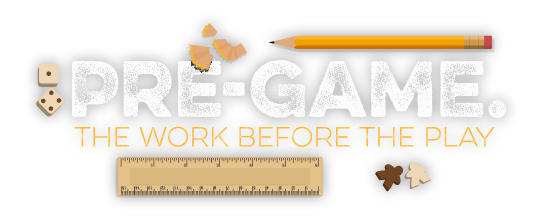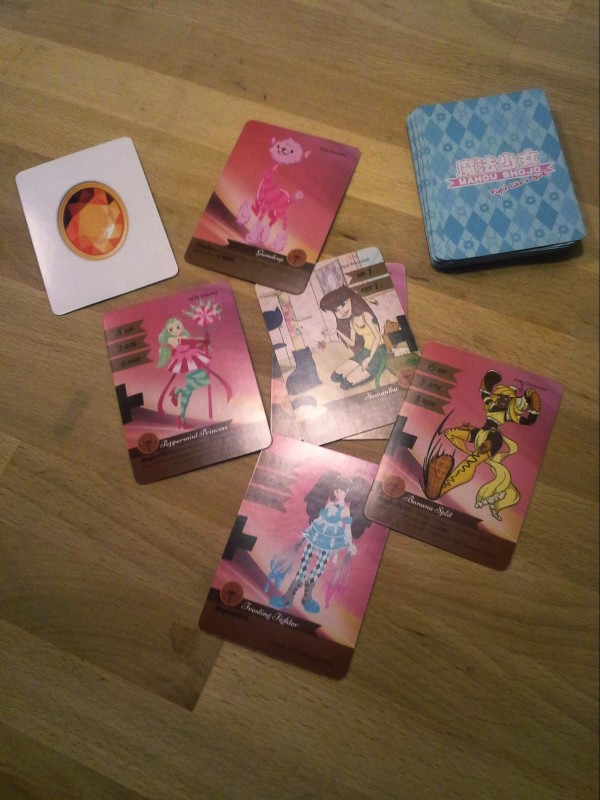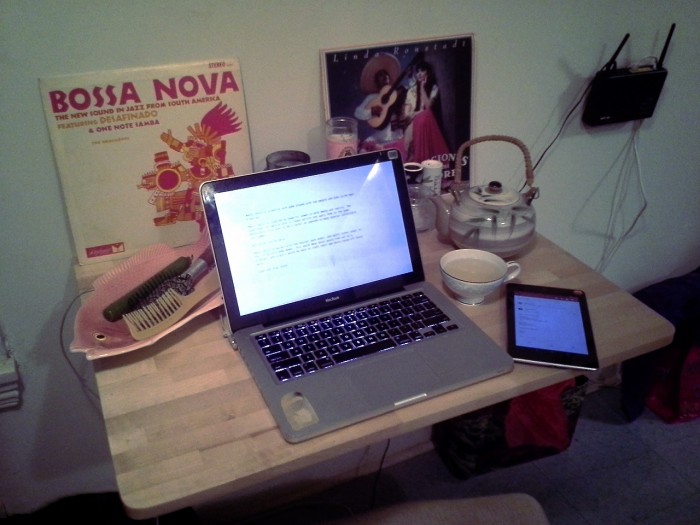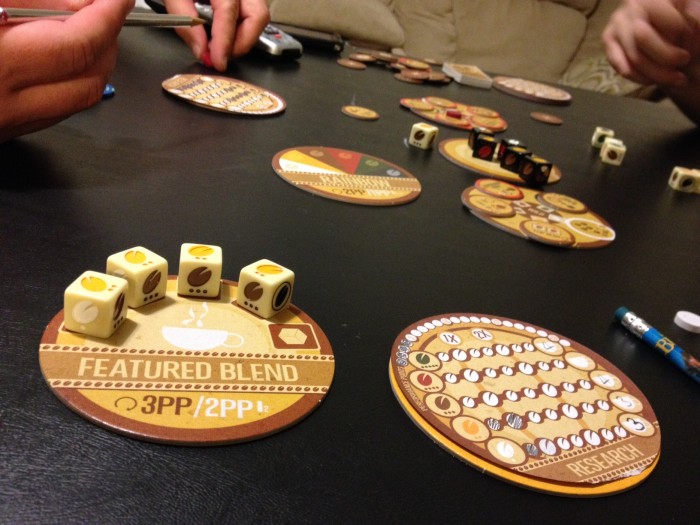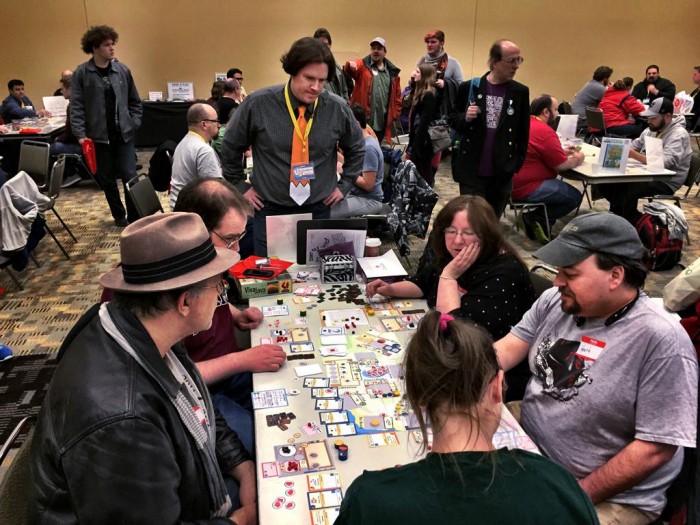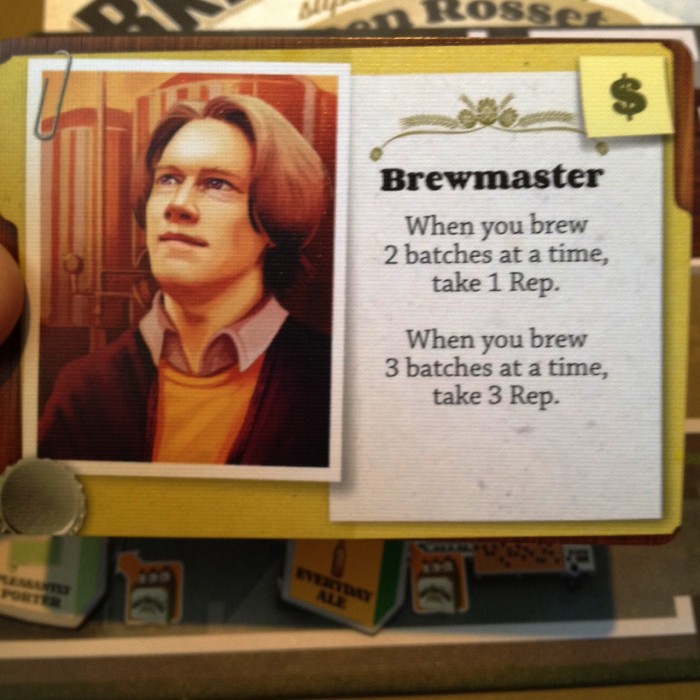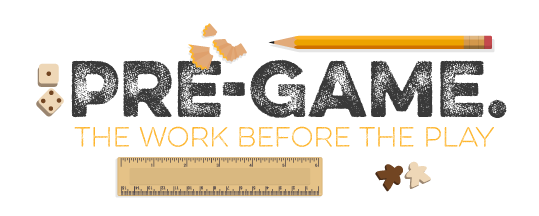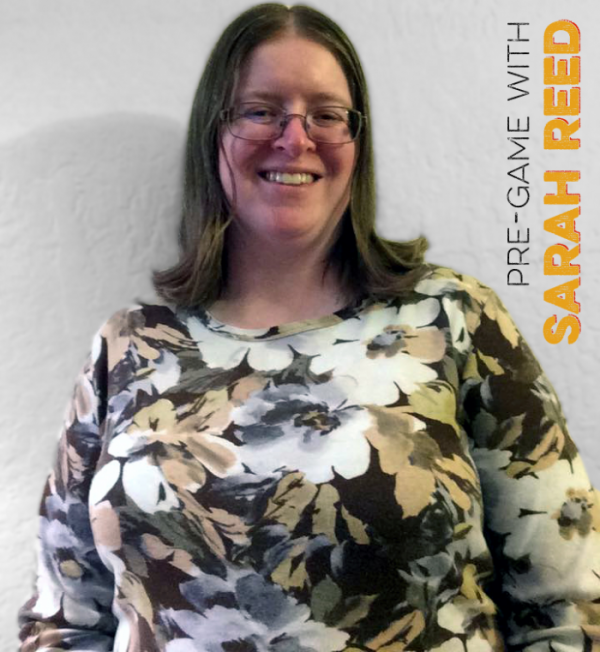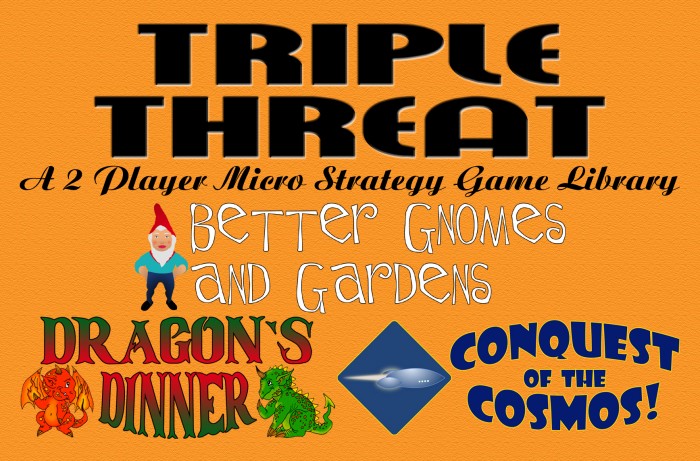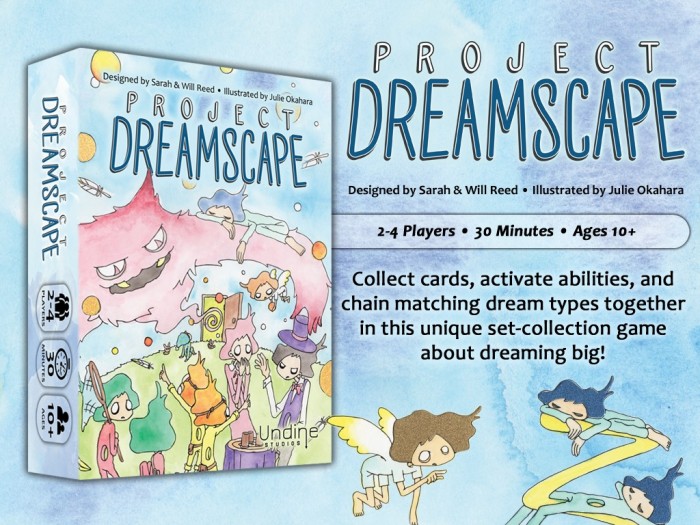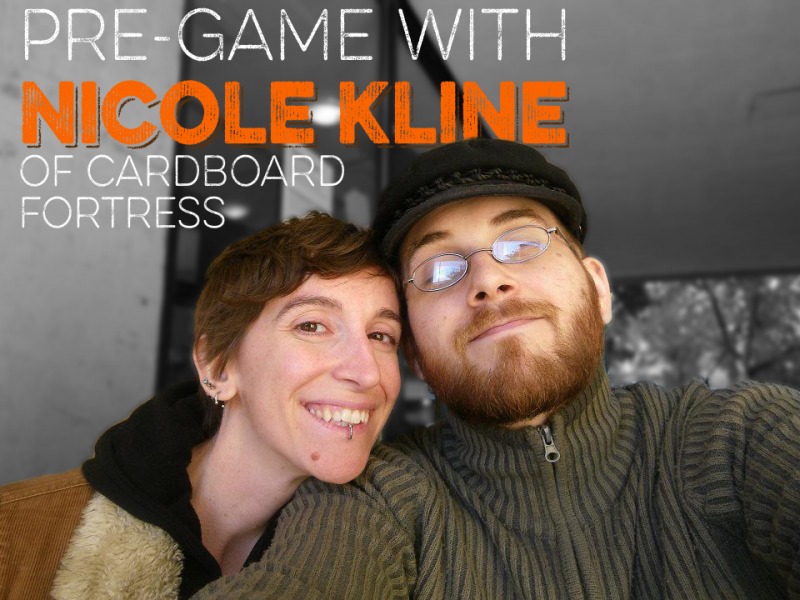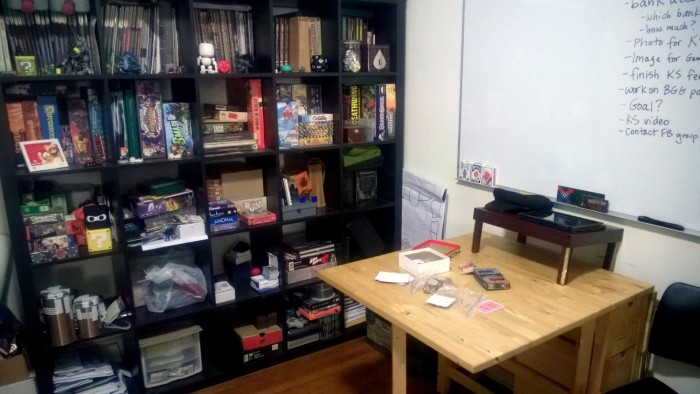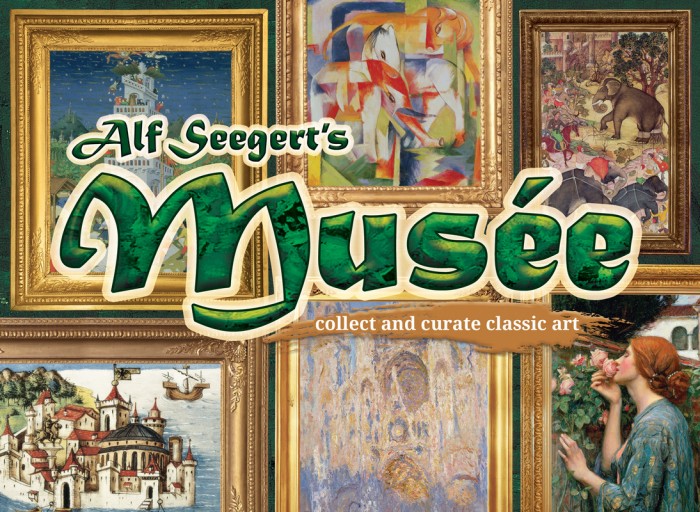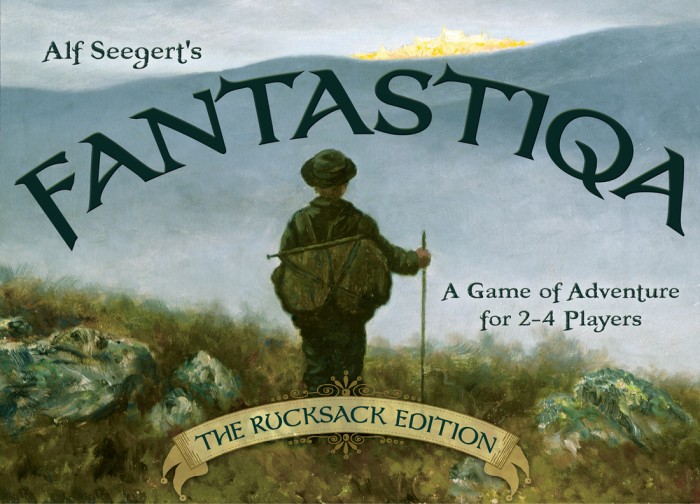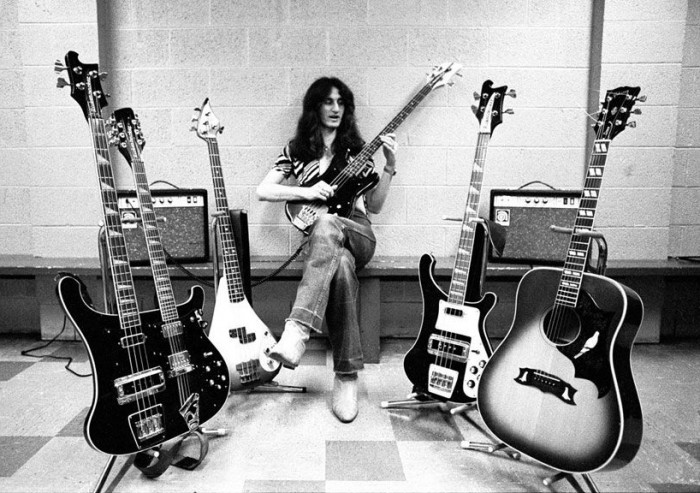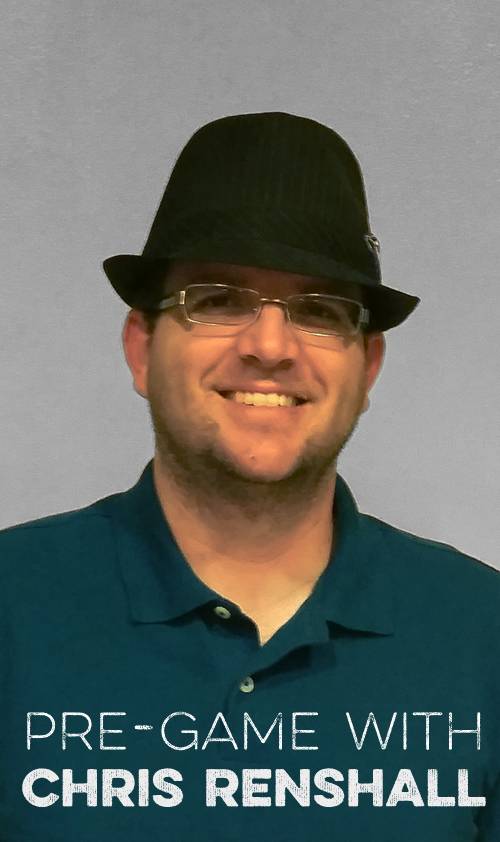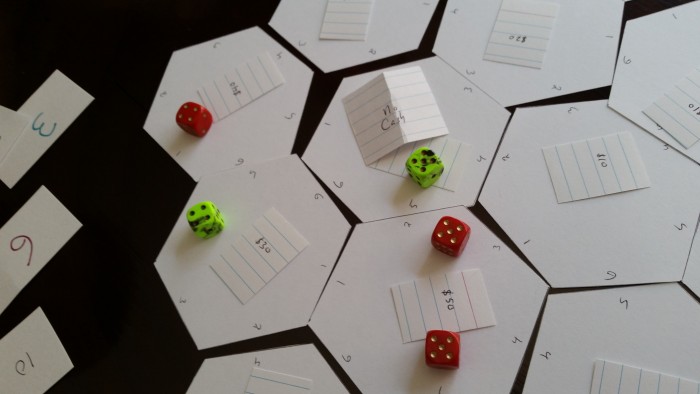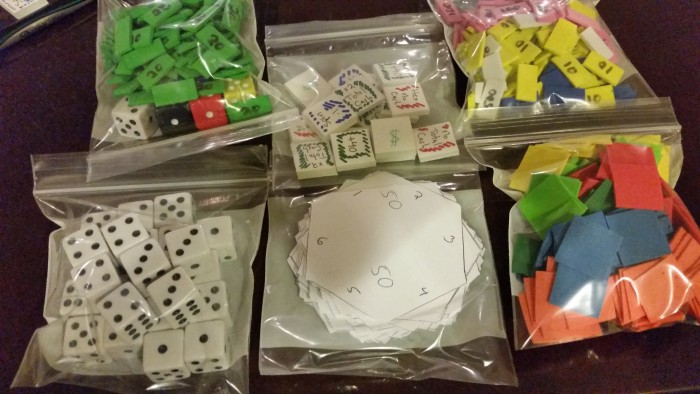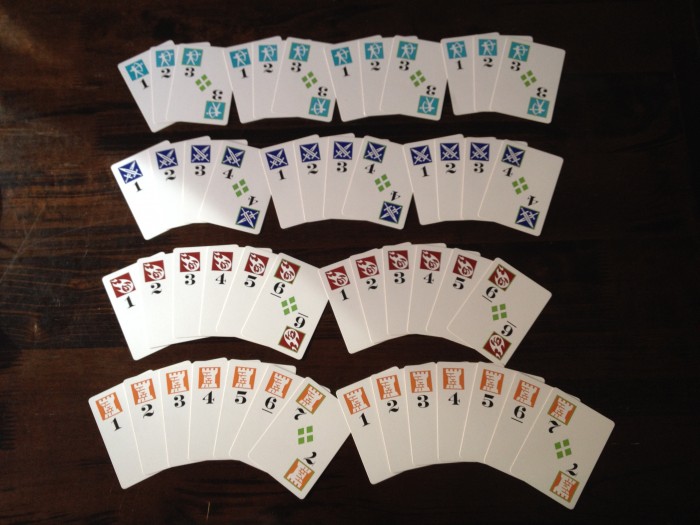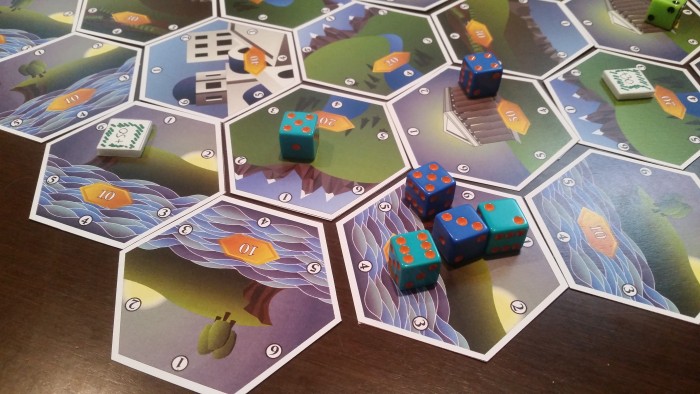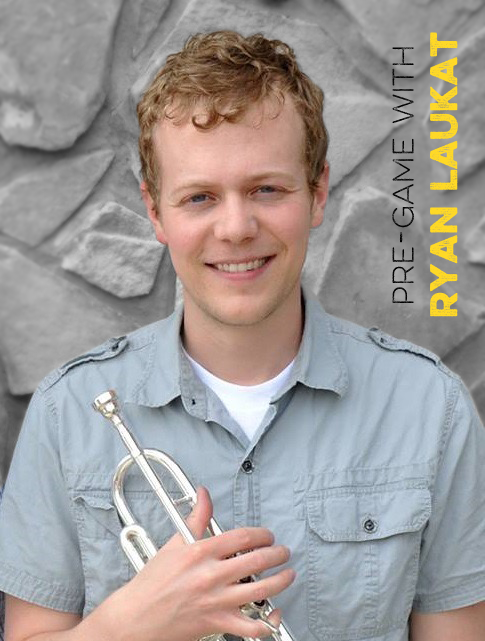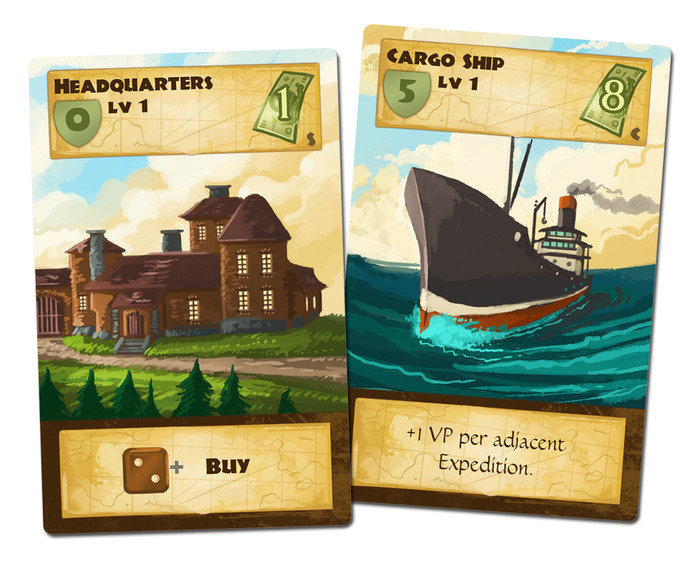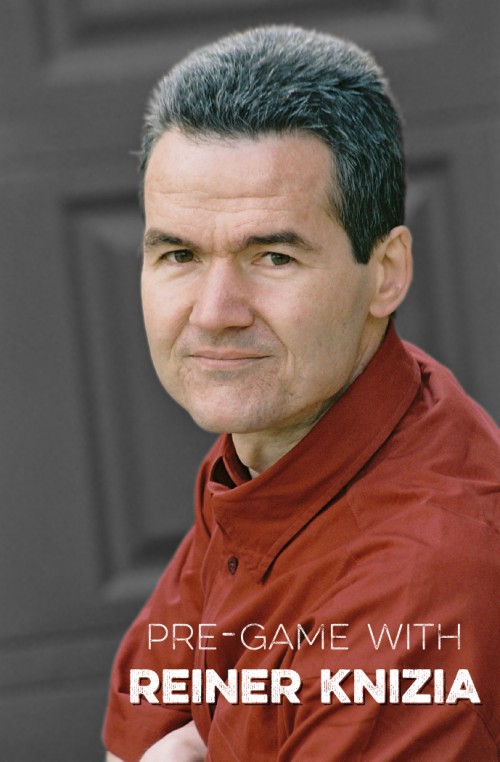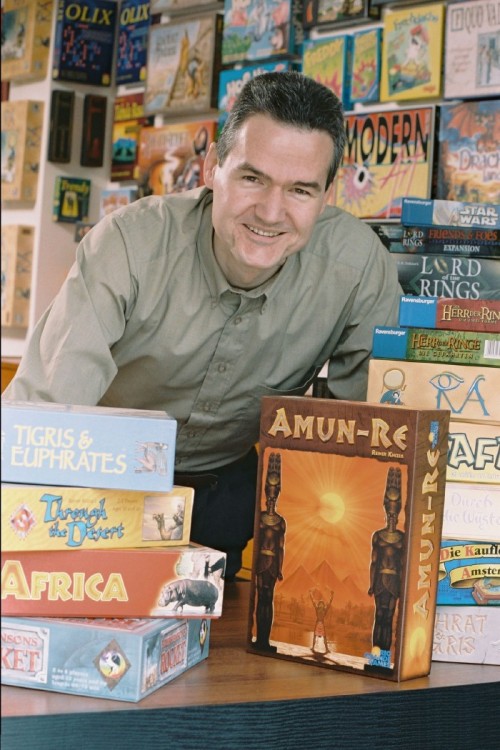
Tell us about yourself – Who are you? What do you do?
Hey there! I’m Mila Pokorny, and I founded Deerfox Games over here in Philadelphia. I work as a Game Designer and Illustrator for the company. Currently that involves designing Magical Girls all day.
This post has affiliate links, which directly support Andhegames.com at no extra cost to you. If you have any questions about anything recommended, let me know. – Andrew
If I’ve never played your games before, what’s the first one I should try?
Mahou Shojo is the first game I’ve designed! It’s really easy to pick up, and I’ve put a ton of work into the characters and their designs.
One fact that we probably don’t know about you:
My art is featured in the Fangamer’s Kirby Dream Zine! Some digital games are very close to my heart, and Kirby is definitely one of those games. (Yeah, Kirby! Kirby is my Smash Bros character. –A)
What tabletop games (including digital board/card games) are you playing most right now?
My friend has a cool campaign going in D&D 4th Ed. at the moment, which I cannot wait for the next session. Battle of the Electric Vikings is an amazing party game everyone should play (with me). and I’m about to start a character in Lasers and Feelings. (He’s a Sexy Doctor on the hunt for Alien Honeys).
What are your all-time favorite tabletop games?
Cards against Humanity, I will drop whatever it is I am doing to play a round of it. Ticket to Ride is great, Love Letter, and Munchkin are all also favorites of mine. Personally, I love Pictionary as an anytime game but as you can imagine, no one wants to play with me. Hahaha!
What draws you to make games?
I make games to draw. Games are attractive because of responsive and feedback elements. This is captured easily in digital games, but with tabletop games, you have to force these elements from your friends and co-players. Something else that attracts me about games is elements of imagination and roleplaying. I try to pack these elements into Mahou Shojo.
What are you not naturally good at, that you’ve learned to do for your work?
For the longest time I didn’t take criticism very well, or really was overall embarrassed about the things I was creating. I’ve also learned so much about gamefeel and how to process feedback, especially from those who don’t play tabletop/card games very often. Seperately, Card Games have demanded much Graphic Design skills that I’ve had to ask advice on time and time again. I’m definitely much better than I was when I started Mahou Shojo back in July.
Describe your process (or lack thereof) when making games. How do you reach your final product?
I focus on a concept and see if I can replicate that in a physical game, and how would it affect players. For Mahou Shojo I wanted to make a game about magical warriors, but I wanted something special about them. A magical girl based beat-em-up game called Grief Syndrome had a system where you could use powerful spells but the more you used, you endangered yourself and would eventually lose. This made the game feel much faster. I was able to mimic it with Mahou Shojo’s MGK system, which works a bit like Mana in Magic: The Gathering, but made it much more fleeting. Concepts like this I feel take time to manifest and need to be thought about critically to grow. I could have made a regenerative resource system, but I feel not doing so made the warriors more valuble in battle, and make players really take a step back and strategize.
What design-related media do you consume on a regular basis?
Animation and comics are my fuel, especially for a game like Mahou Shojo, you need a specific image in your head of how combat works and how to translate that to text and card actions.
What are some tool/programs/supplies that you wouldn’t work without?
FireAlpaca is a godsend if you love everything Paint Tool Sai has to offer (stroke stabilization and easy color blending) but are on a Mac (or poor).
What’s your playtesting philosophy? How often/early do you playtest?
I playtest as often as I can with as many different as possible. Young and old, veterans and newbies! Everyone offers different advice and is always worth listening to. Mahou Shojo is intended for young girls, so they are the audience we try the most. But I’ve been experimenting with anime fans who have never touched a card game and it’s been going really well.
What are some of the biggest obstacles you’ve faced in your work, and how have you overcome them?
Making your first game is hard. I’ve worked in digital games, but mostly as an artist. Building your own game from the ground up is a wake up call to test what you really know about games. The biggest obstacle has been making my games quick to play and easy for children to play. Most of it was solved by pulling the reigns on numbers of actions a player can do during a turn. Once I feel the game gets too complicated I have to ask myself “Would 9 year old Mila play this?” If the answer is ever “no,” you scrap it and try it another way. Secondly, I have strict guidelines regarding the art to ensure children and adults can see themselves and hopefully characters they would want to become.
How do you handle life/family/work balance?
Terribly haha. I live with my boyfriend Andy, but its a chore to pull myself away from work to see them, and they’re a 20 minute drive away. Let alone see my own family. (Hi Mom and Daniel)
Do you have a second job? If so, what do you do? If not, when/how did you quit your day job?
Daytime is designing for QuadraTron Games. I develop our current game Threshold to be as eye-pleasing as possible.
How many hours/week do you generally devote to game design? How many to other business-related activities?
I try for at least 2 days of out my work week, but sometimes that time is away by preparing for the next event Deerfox plans to go to.
What one piece of advice would you give aspiring game designers?
Playtest often and Playtest Cheaply.
Who would you like to see answer these questions?
Heather ONeill of 9th Level games and her adorable (and now funded) Schrödinger’s Cats.
What’s the best advice about life that you’ve ever received?
My dad once told me, “The only thing constant in life is change.” Which he meant to never get too comfortable, and that people also change whether they mean to or not.

